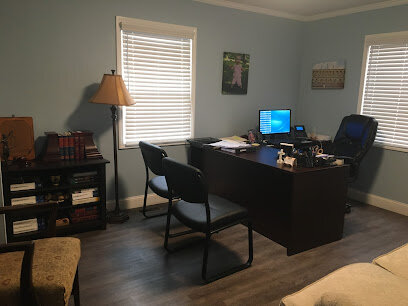Best Collaborative Law Lawyers in Arkansas
Share your needs with us, get contacted by law firms.
Free. Takes 2 min.
Free Guide to Hiring a Family Lawyer
Or refine your search by selecting a city:
List of the best lawyers in Arkansas, United States
About Collaborative Law in Arkansas, United States
Collaborative Law is a unique method for resolving disputes, particularly family law matters like divorce and child custody, outside of the traditional courtroom setting. In Arkansas, Collaborative Law allows parties to work together with their respective lawyers to find mutually beneficial solutions. This approach emphasizes open communication, voluntary disclosure of information, respectful negotiation, and creative problem-solving. Unlike adversarial litigation, Collaborative Law promotes cooperation and helps preserve relationships, making it a popular choice for families seeking a less contentious way to resolve their legal issues.
Why You May Need a Lawyer
People often seek legal assistance with Collaborative Law in Arkansas for various reasons. Some common situations include:
- Going through a divorce or legal separation and seeking an amicable resolution
- Developing fair arrangements for child custody, visitation, and support
- Dividing marital assets without resorting to court battles
- Reaching agreements on alimony or spousal support
- Modifying prior divorce or custody agreements
- Addressing disagreements over parenting or family business issues
- Wanting privacy and control over the outcome, rather than having a judge make decisions
- Hoping to save time and reduce legal costs
Having a trained Collaborative Law lawyer ensures that your interests are protected while you work toward a fair agreement outside of court.
Local Laws Overview
Arkansas has adopted the Uniform Collaborative Law Act (UCLA), which establishes the legal framework for Collaborative Law in the state. Key aspects include:
- Voluntary Participation: Both parties must willingly enter into the collaborative process and sign a formal Participation Agreement. This agreement outlines the rules, expectations, and the requirement that lawyers must withdraw if the process fails and litigation becomes necessary.
- Focus on Cooperation: The law requires both sides to be transparent and honest in disclosing relevant information. This openness is vital to reaching fair solutions.
- Privacy and Confidentiality: Communications and documents shared during the collaborative process are confidential and generally cannot be used in court if the process ends without resolution.
- Multi-Disciplinary Approach: The Arkansas Collaborative Law process can involve other professionals, such as financial advisors and mental health specialists, to support the parties in reaching agreements.
- No Court Involvement: The court’s involvement is limited to approving and entering the final agreement, if one is reached.
Understanding these local laws can help individuals decide if Collaborative Law is the right approach for their legal situation.
Frequently Asked Questions
What is Collaborative Law?
Collaborative Law is a legal process where parties resolve disputes cooperatively outside the courtroom. Each person is represented by a trained collaborative attorney, and all parties commit to working respectfully toward a mutually acceptable settlement.
What kinds of cases are suitable for Collaborative Law in Arkansas?
Collaborative Law is often used in family law cases such as divorce, child custody, child support, and property division. It can also be used in some civil disputes, business dissolutions, and probate matters where cooperation is possible.
What is a Participation Agreement?
A Participation Agreement is a critical document signed by all parties and their attorneys at the beginning of the collaborative process. It sets out the expectations, requires full disclosure of information, prohibits threats of going to court, and outlines what happens if the process does not result in a settlement.
Can other professionals participate in the collaborative process?
Yes, Arkansas collaborative cases often involve neutral third-party professionals, such as financial advisors, accountants, or child specialists, who help the parties address specific issues and come to informed agreements.
What if Collaborative Law does not work?
If parties cannot reach an agreement, the collaborative attorneys must withdraw. The parties then can hire different lawyers to proceed through the traditional court process.
Is Collaborative Law legally binding?
Yes, once all parties reach and sign an agreement, and the court approves it (in applicable matters), the agreement becomes legally binding and enforceable in Arkansas.
How is Collaborative Law different from mediation?
While both are alternatives to litigation, Collaborative Law gives each party their own attorney and often uses a team of neutral professionals. Mediation, on the other hand, involves a neutral mediator working directly with both parties, often without separate lawyers present during negotiations.
Do all lawyers practice Collaborative Law?
No, Collaborative Law requires special training. Be sure to choose a lawyer with experience and certification in collaborative practice to guide you through the process.
How much does Collaborative Law typically cost?
Costs vary depending on the complexity of the issues and number of professionals involved, but Collaborative Law is often less expensive than traditional litigation because it generally resolves disputes more efficiently and avoids lengthy court battles.
Is Collaborative Law right for every situation?
Collaborative Law works best when both parties are willing to negotiate honestly and respectfully. It may not be suitable in cases involving domestic violence, abuse, or where there is a significant power imbalance between the parties.
Additional Resources
If you are interested in learning more or need support regarding Collaborative Law in Arkansas, consider these helpful resources:
- Arkansas Bar Association Family Law Section
- Arkansas Access to Justice Commission
- International Academy of Collaborative Professionals (IACP) - Directory for Arkansas practitioners
- Arkansas Judiciary - Official court information and self-help guides
- Community legal aid organizations for free or low-cost advice
- Local mediation centers and dispute resolution organizations
Next Steps
If you believe Collaborative Law may be the right path for your legal matter, consider the following steps:
- Assess whether all parties are open to cooperation and honest communication
- Research and contact a trained Collaborative Law attorney in Arkansas who can explain your options and guide you through the process
- Prepare to discuss your goals and what you hope to achieve through collaboration
- Consult with your advisor about involving any needed professionals, such as financial or child specialists
- Be ready to sign a Participation Agreement and approach negotiations with an open mind and respectful attitude
- If you have questions or concerns, ask your lawyer for clarification or additional resources to support your decision-making
Taking the time to understand Collaborative Law and seeking professional guidance can lead to more satisfying, amicable, and fair resolutions for all parties involved.
Lawzana helps you find the best lawyers and law firms in Arkansas through a curated and pre-screened list of qualified legal professionals. Our platform offers rankings and detailed profiles of attorneys and law firms, allowing you to compare based on practice areas, including Collaborative Law, experience, and client feedback.
Each profile includes a description of the firm's areas of practice, client reviews, team members and partners, year of establishment, spoken languages, office locations, contact information, social media presence, and any published articles or resources. Most firms on our platform speak English and are experienced in both local and international legal matters.
Get a quote from top-rated law firms in Arkansas, United States — quickly, securely, and without unnecessary hassle.
Disclaimer:
The information provided on this page is for general informational purposes only and does not constitute legal advice. While we strive to ensure the accuracy and relevance of the content, legal information may change over time, and interpretations of the law can vary. You should always consult with a qualified legal professional for advice specific to your situation.
We disclaim all liability for actions taken or not taken based on the content of this page. If you believe any information is incorrect or outdated, please contact us, and we will review and update it where appropriate.
Browse collaborative law law firms by city in Arkansas
Refine your search by selecting a city.















